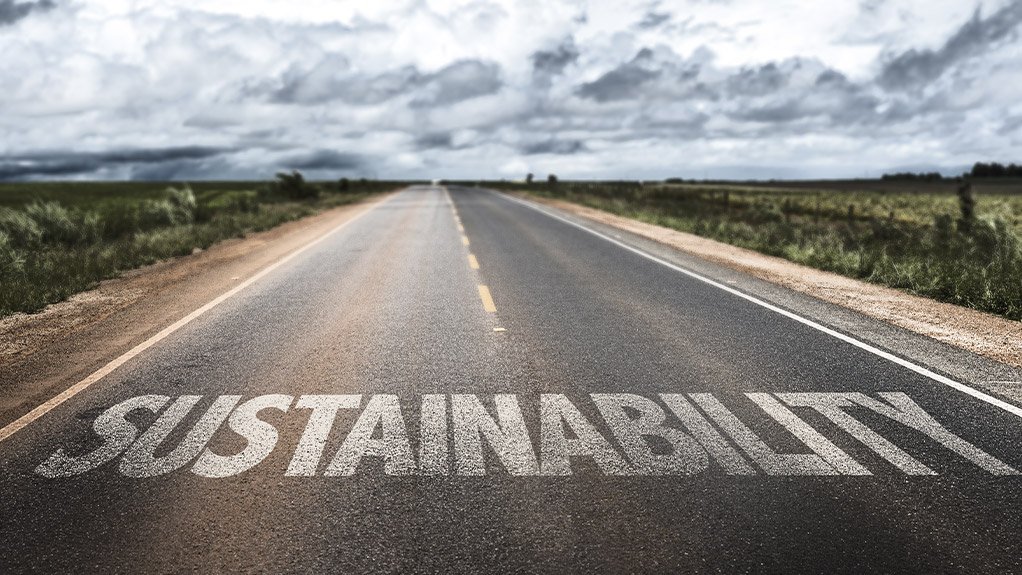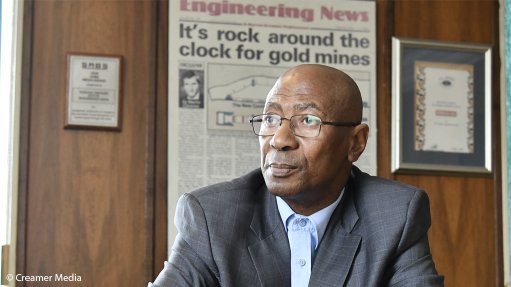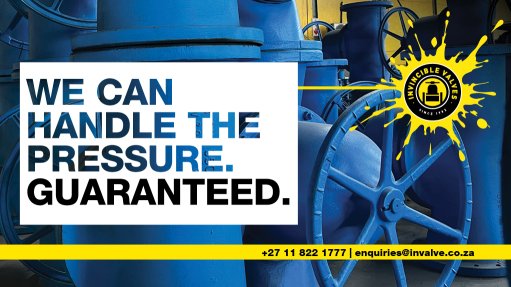Sustainability for the next century: Looking back to move forward
By Keketso Motjuwadi, Sustainability Lead for Southern Africa at Royal HaskoningDHV
The idea of sustainability has evolved a lot since Royal HaskoningDHV started operating in Southern Africa 100 years ago.
Initially, it was all about the environment, recycling, and reusing. But sustainability has evolved over the century to encompass aspects both natural and built, philosophical and practical and the relationship between them all.
Sustainability has become a buzzword since its popularisation in the early 2000s. Due to the frequency and looseness of its use, it means different things to different people. People have become sceptical and fatigued by the concept at a time when we should be rallying behind the global effort to take responsibility for humanity’s actions.
If we’re to achieve true sustainability, we need a different mindset and inclusive approach.
Looking back to move forward
When it comes to adaptation and mitigation, the buck gets passed around between industry, government, and the consumer. Ironically this manner of linear thinking mimics the interdependent connections of the global network.
In the past, people, planet, and profit were seen to be connected linearly, but social inclusion, economic growth, and environmental protection are all more complexly interconnected.
We need to start recognising these inter- and intra-relationships because true sustainability is about achieving balance: Industry requires government funding, consumer revenue, and regulations to advance. Governments require industry innovation and public buy-in to economically support these innovations. And consumers need more information on products and more sustainable options.
A balanced way to think about sustainability
Let me be clear, we all have a role to play.
It is in businesses' best interest to operate within a sustainable framework.
Companies can make intentional changes to their products, services, and processes to generate long-term social and environmental benefits while still generating profit, rather than simply offsetting their negative impacts.
Engineering firms are no different—we must advocate for sustainable innovation in all projects, going ‘beyond the brief’ and educating collaborators and stakeholders on the benefits of approaches like nature-based solutions and biomimicry. There is no shortage of inspiration from nature, and seeing is believing. Once people begin to see the benefits for themselves, they will be motivated to change their perspectives.
It is the responsibility of all major players, both public and private, to engage with each other as we literally are all in this together.
Investing in sustainable practices often takes a back seat in public sector planning because there are always other, more “visible” challenges competing for attention, such as ageing water infrastructure, service delivery backlogs, and—in South Africa—an electricity sector in crisis.
However, the public sector has demonstrated that policy changes can be made relatively quickly when there is an urgency to do things differently. President Cyril Ramaphosa recently announced the government’s new energy plan, which aims to accelerate the procurement of new generation capacity, increase private investment in generation, and enable businesses and households to invest in rooftop solar.
Governments should also cultivate stronger relationships with the private sector, which is ready and willing to execute on the ground.
It’s interesting to note that although 75% of countries view climate change as their biggest threat, 64% believe many of the world’s problems can be solved by working together and learning from other countries. Teamwork makes the dream work, anyone?
A perfect example of this in engineering is the International Water Association’s (IWA’s) Digital Water Programme, which aims to facilitate the journey of the water industry towards digital uptake through access to knowledge and best practices on the application of digital approaches to improve water utilities’ capacity and performance.
Technology, however, is not the silver bullet many believe it to be.
Artificial intelligence (AI) and digital twins can do much of the thinking that humans have traditionally done to solve sustainability challenges. It has the potential to accelerate global efforts to protect the environment and conserve resources by detecting energy emission reductions and CO2 removal and by assisting in the development of greener transportation networks, monitoring deforestation, and predicting extreme weather conditions. And Digital Twins assist us in making smart decisions about infrastructure investment.
But humans will ultimately be responsible for deciding which solution best fits the context and for implementing it.
We must not, however, forget that technology doesn’t work on magic. It interacts with the natural environment: Massive volumes of water are required to cool data centres, and blockchain is energy-intensive and contributes to greenhouse gas emissions.
Building Information Modelling (BIM) and Digital Twins provide virtual mirrors of real-world assets and systems, providing insights into how the system behaves and responds under various simulated conditions. These ecosystems increase efficiency, reduce costs, and enable engineers to create more informed solutions to today's major societal and environmental challenges.
Consumers should be more conscious of their decisions and demand change.
Hyper-consumption is arguably among the most significant obstacles to sustainability.
Our decisions have consequences. Long-term sustainability will be impossible to achieve unless human behaviour changes dramatically.
When I find myself overwhelmed as a single person in the global push toward a more sustainable and equitable society, I am reminded of a quote from David Mitchell’s Cloud Atlas, “What is an ocean but a multitude of drops?”
Join the movement.
After 100 years of enhancing society together with our clients and stakeholders, we’ve learnt two things: History repeats itself, but humans have a short memory.
We don't have to look too far back into history to find things we've forgotten about, such as Day Zero in Cape Town, floods in KwaZulu-Natal, and drought in the Eastern Cape. Even after devastating events, we move on relatively quickly—especially if we are not directly impacted or affected.
Floods and droughts will occur again, becoming more frequent and severe. And unless we begin to take sustainability seriously and change how we do things across all areas, we will become increasingly ill-equipped to deal with and recover from the effects of living unsustainably.
Businesses, governments, and engineering firms are made up of citizens, of you. You, who can shift the narrative of your organisation and effect change. You have a say in leaving a legacy to be proud of.
We’ve already begun. Join. There is space for everyone.
Contact Information
Contact Keketso Motjuwadi, Sustainability Lead for Southern Africa at Royal HaskoningDHV, if you’d like to find out more about our approach to sustainability or our ambition to enhance society together.
Email: keketso.motjuwadi@rhdhv.com
Website: Royal HaskoningDHV
Contact number: +27 (0) 87 352 1500
Article Enquiry
Email Article
Save Article
Feedback
To advertise email advertising@creamermedia.co.za or click here
Comments
Press Office
Announcements
What's On
Subscribe to improve your user experience...
Option 1 (equivalent of R125 a month):
Receive a weekly copy of Creamer Media's Engineering News & Mining Weekly magazine
(print copy for those in South Africa and e-magazine for those outside of South Africa)
Receive daily email newsletters
Access to full search results
Access archive of magazine back copies
Access to Projects in Progress
Access to ONE Research Report of your choice in PDF format
Option 2 (equivalent of R375 a month):
All benefits from Option 1
PLUS
Access to Creamer Media's Research Channel Africa for ALL Research Reports, in PDF format, on various industrial and mining sectors
including Electricity; Water; Energy Transition; Hydrogen; Roads, Rail and Ports; Coal; Gold; Platinum; Battery Metals; etc.
Already a subscriber?
Forgotten your password?
Receive weekly copy of Creamer Media's Engineering News & Mining Weekly magazine (print copy for those in South Africa and e-magazine for those outside of South Africa)
➕
Recieve daily email newsletters
➕
Access to full search results
➕
Access archive of magazine back copies
➕
Access to Projects in Progress
➕
Access to ONE Research Report of your choice in PDF format
RESEARCH CHANNEL AFRICA
R4500 (equivalent of R375 a month)
SUBSCRIBEAll benefits from Option 1
➕
Access to Creamer Media's Research Channel Africa for ALL Research Reports on various industrial and mining sectors, in PDF format, including on:
Electricity
➕
Water
➕
Energy Transition
➕
Hydrogen
➕
Roads, Rail and Ports
➕
Coal
➕
Gold
➕
Platinum
➕
Battery Metals
➕
etc.
Receive all benefits from Option 1 or Option 2 delivered to numerous people at your company
➕
Multiple User names and Passwords for simultaneous log-ins
➕
Intranet integration access to all in your organisation





















